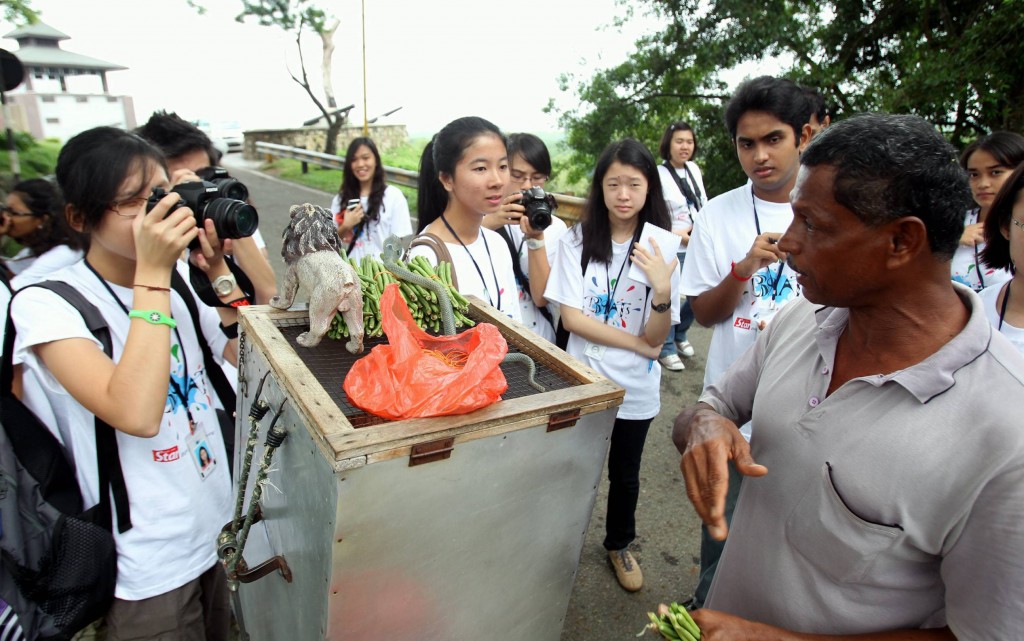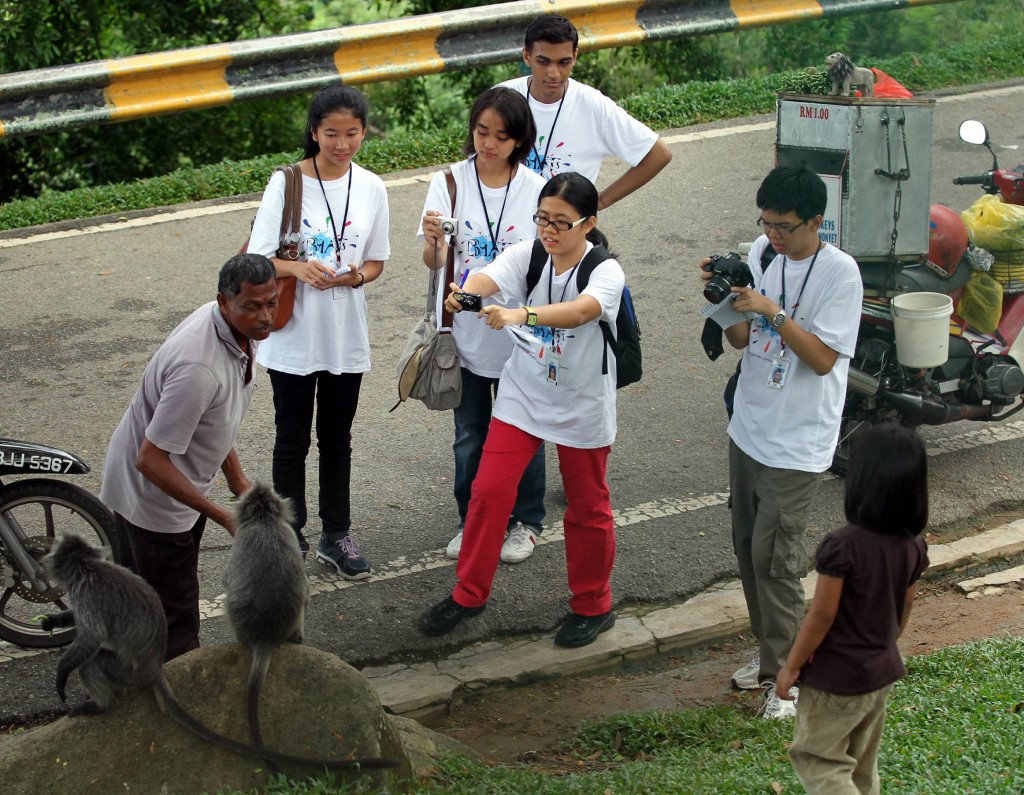VISITORS to Bukit Melawati have the relics of the fort to admire. There are cannons still standing in their original location ready to attack ships in the sea, the lighthouse that is still functioning, a museum and even a poison well. But many are most fascinated with the antics of the monkeys that roam freely about.
And no one knows these monkeys better than hawker Panchanathan who sells long beans to visitors to feed the primates.

The BRATs interviewing Panchanathan, who has been selling long beans to tourists for monkey-feeding at Bukit Melawati for the last 15 years.
According to Wikipedia, Bukit Malawati is home to the sliver-leaf monkeys (Trachypithecus cristatus). Their diet consists mainly of fruits, seeds, flowers and mature leaves. They are territorial in nature and move around in groups of nine to forty. The silver-leaf monkeys are classified as Near Threatened by the International Union for Conservation of Nature and Natural Resources (IUCN).
The 57-year-old hawker has been selling monkey food in that area for 15 years, and has been observing the monkeys all these years. He recognises the faces of all the silver-leaf monkeys, and has named the five clans of silver-leaf monkeys in Bukit Malawati based on their characteristics, namely Veerapa (brave), Malas (lazy), Bonggol (hump), Makan (eat) and Blind Eyes.
“I called this group Malas (lazy) because the group leader is very lazy. After eating, he does not like to move anymore. Even if you offer him food, he does not want it,” he joked.
He named the only monkey who is daring enough to climb onto his motorcycle Motorbike. He subsequently demonstrated Motorbike’s habits.
“This monkey here (Motorbike) he knows me. That’s why, you see, you give him long beans, he doesn’t want. He wants bread,” said Panchanathan who used to sell bread before he sold long beans for monkeys.

Panchanathan has given names to all the monkeys that frequent the feeding spot, and seems to have a genuine affection for them. Experts, however, say that feeding the monkeys could adversely affect their behaviour and subsequently, the natural balance of their ecosystem.
Panchanathan even showed us his hand-shake trick with the monkeys. He also knows that the monkeys are terrified of snakes, so he uses a rubber snake to scare the monkeys that get too close for comfort. He even tried getting a monkey to kiss him on the cheek. He also claims that international researchers have interviewed him about the monkeys in that area.
“These monkeys can attract more tourists,” he said enthusiastically.
Although there is no doubting Panchanathan’s affection for the monkeys, he is not doing them much of a favour by selling food for them.
Conservation officer of the Malaysian Nature Society, Sonny Wong stated that it is better to leave wild animals alone. Once fed, they may rely on people to feed them or else they may turn aggressive. He also mentioned that there is hardly any enforcement and selling food to be fed to wild animals is simply a good way to make money.
Principal senior assistant director of the law and enforcement division from the Department of Wildlife and National Parks Shamsuddin Osman said it is not stated under the law that one should not feed wild animals. It depends on the administration of the respective parks.
However, many wildlife parks discourage public from feeding wildlife.
Kuala Selangor Nature Park’s manager Maichal Isthy said people should not be encouraged to feed monkeys as it disrupts their natural feeding habits.

Tell us what you think!